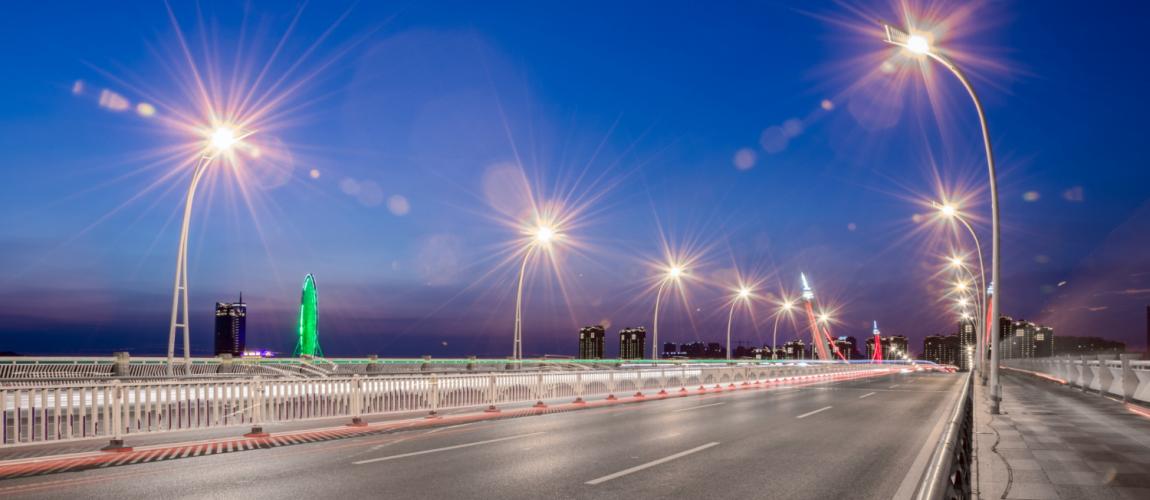Smart Poles and Streetlights, Bhopal, Madhya Pradesh, India

Photo Credit: Image by Freepik
On this page: A case study on Smart Poles and Streetlights, Bhopal, Madhya Pradesh, India. Find more at the Municipal Public-Private Partnership Framework - Project Summaries section for brief summaries of around 100 projects from around the world, examples of successes and challenges, as well as innovative ideas on solutions, or visit the Guidelines on Innovative Revenues for Infrastructure section.
Project Summary: Background Bhopal, the capital city of Madhya Pradesh with a population of 2.4 million, is the economic center of the state and one of the greenest cities in India. As it embraces a transition into a more global city, it is currently pursuing a number of smart city projects under India’s “Smart Cities Mission.” Two such projects, namely smart poles and intelligent streetlights, were bundled into one PPP project. Project Structure In 2017, the Bhopal Smart City Development Corp. Ltd. (BSCDCL) awarded the project to Swedish telecom gear maker Ericsson and telecom tower company Bharti Infratel. The project cost was estimated at INR 6.9 billion (USD 98 million), including INR 3.9 billion (USD 55 million) in capital expenditures and INR 3 billion (USD 43 million) in operational expenditures for 15 years under a DFBOOT (Design-Finance-Build-Own-Operate- Transfer) model. The project requires no investment from the City. The two components of the PPP were: Smart poles: Installation of 400 smart poles across the City, which will work as, among others, energy-efficient and remotely controllable LED streetlights, surveillance cameras, environmental sensors, Wi-Fi hotspots services, and electric vehicle charging points. Intelligent Street Lights: Installation of 20,000 LED streetlights to replace the conventional sodium lamps and mercury lamps. The new lights offer features such as remote operation and control of the streetlight system, SMS reporting in the event of failures, and power theft control detection. The Intelligent Traffic Management System hub in the Smart City’s office will track these smart poles and streetlights, as well as traffic cameras. The Smart Pole Command Control Center was inaugurated on 8 May 2018. Funding will be derived from the energy savings realized (a minimum of 35 percent guaranteed savings is required), advertisement on the poles, and the 180-km of fiber optic cable laid beneath these poles. The revenue is to be shared between the BSCDCL and the private operator. Lessons Learned In June 2018, a report stated that there was no coordination among BSCDCL, Bhopal Municipal Corporation (BMC) and traffic police on the smart poles installation. As a result, there are too many poles installed in the City. BMC installed poles for the gantry, while traffic police installed poles for signals and CCTV. The installation of these poles indirectly affected the traffic as the reflection of lights on these poles has diverted people’s attention from driving. This highlights the importance of ensuring good coordination among municipality authorities when it comes to PPP delivery, in order to maximize the effectiveness of service delivery to the citizenry. Nonetheless, the project is innovatively structured as it bundled many smart services into one contract, thereby increasing value for money for BMC. In December 2018, BSCDCL was planning to equip 100 smart poles with sensors to track and kill mosquitoes and collect information about mosquito breed, due to the rise in vector-borne ailments like zika, dengue, and Chikungunya.1 Footnote 1: Case source(s): https://smartnet.niua. org/sites/default/files/ resources/3_0.pdf Accessed on May 17, 2019. https://telecom. economictimes. indiatimes.com/news/ ericsson-bharti-infratelbag- smart-city-deal-forbhopal- city-to-deploy- 400-smart-poles-withwifi- service/58161194 Accessed on May 17, 2019. https://www.itu.int/ en/ITU-D/Regional- Presence/AsiaPacific/ SiteAssets/Pages/ Events/2018/ CoESmartcityoct2018/ IOT_SmartCity/ BSCDCL%201-Nov-18. pdf Accessed on May 17, 2019. https://scroll.in/ article/910434/ as-bhopal-is-recastas- a-smart-city-poorresidents- worry-if-theywill- have-a-place-in-it Accessed on May 17, 2019. https://smartbhopal. city/smart-pole-andintelligent- street-lightproject Accessed on May 17, 2019. http://smartcities.gov.in/ upload/tender/582d 4607ab71fbhopal SmartCity_Part1.pdf Accessed on August 12, 2019. http://www. districtenergyinitiative. org/sites/default/files/ Bhopal%20Rapid%20 Assessment%20 Report%20Version%20 1.0.pdf Accessed on August 12, 2019.
The Guidelines on Innovative Revenues for Infrastructure (IRI) is intended to be a living document and will be reviewed at regular intervals. They have not been prepared with any specific transaction in mind and are meant to serve only as general guidance. It is therefore critical that the Guidelines be reviewed and adapted for specific transactions.
To find more, visit the Innovative Revenues for Infrastructure section and the Content Outline, or Download the Full Report. For feedback on the content of this section of the website or suggestions for links or materials that could be included, please contact the Public-Private Partnership Resource Center at ppp@worldbank.org.
Updated:
TABLE OF CONTENTS
I. Innovative Revenues for Infrastructure (IRI)
2. Introduction to Commercial Value Capture (CVC)
3. Applying CVC in Infrastructure Projects
2. Case Studies in CVC from International Experiences
Related Content
Select WBG PPP Toolkits
Featured Section Links
Additional Resources
Climate-Smart PPPs
Type of ResourceFinance Structures for PPP
Type of ResourceFinancing and Risk Mitigation
Type of Resource